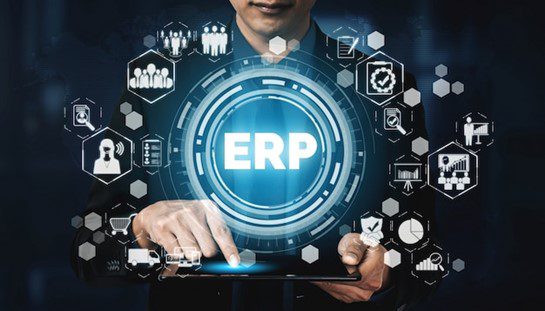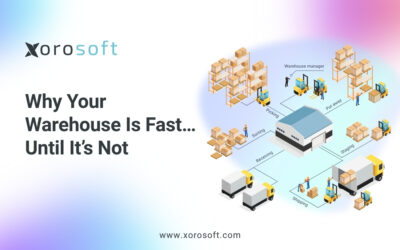
Introduction to ERP Systems
As businesses grow and expand, the need for effective and efficient management of resources becomes paramount. Enterprise Resource Planning (ERP) systems have emerged as a comprehensive solution to streamline various business processes, including inventory management, accounting, and more. ERP systems integrate different departments within an organization, providing a centralized platform for data management and analysis. This article delves into the transformative power of AI and machine learning in revolutionizing ERP systems for the future.
Understanding the Benefits of ERP Systems
ERP systems offer numerous advantages to businesses of all sizes. By integrating various functions such as finance, human resources, and supply chain management, ERP systems provide a holistic view of the organization’s operations. This enables better decision-making and resource allocation. Additionally, ERP systems enhance data accuracy by eliminating the need for manual data entry and reducing the risk of human errors. Real-time data visibility and analytics capabilities empower organizations to identify trends, make informed predictions, and optimize processes for improved efficiency.
The Role of AI and Machine Learning in ERP Systems
Artificial Intelligence (AI) and machine learning have emerged as game-changers in the field of ERP systems. AI refers to the simulation of human intelligence in machines, enabling them to perform tasks that typically require human intelligence. Machine learning, a subset of AI, utilizes algorithms to enable systems to learn from data and improve their performance over time. When integrated with ERP systems, AI and machine learning technologies provide advanced data analysis, predictive capabilities, and automation, enhancing the overall functionality and efficiency of the system.
How AI and Machine Learning Can Transform ERP Systems
The integration of AI and machine learning in ERP systems opens up new possibilities for businesses. With AI-powered analytics, organizations can gain deeper insights into their operations, enabling them to predict demand, optimize inventory levels, and make data-driven decisions. Machine learning algorithms can analyze historical data to identify patterns and anomalies, improving forecasting accuracy and reducing inventory holding costs. This transformative power of AI and machine learning allows businesses to optimize their supply chain, meet customer demands more efficiently, and ultimately drive profitability.
Enhancing Inventory Management with AI and Machine Learning
Inventory management is a critical aspect of any business, and AI and machine learning can play a significant role in optimizing this process. By leveraging historical sales data, AI algorithms can forecast demand, identify seasonality, and suggest optimal inventory levels. Machine learning models can analyze customer buying patterns and preferences to identify trends and recommend appropriate inventory replenishment strategies. Real-time data integration with AI and machine learning algorithms enables proactive inventory management, reducing stock-outs and excess inventory, and ensuring optimal utilization of resources.
Streamlining Accounting Processes with AI and Machine Learning
Accounting processes are often time-consuming and prone to errors. AI and machine learning can streamline these processes, reducing manual intervention and improving accuracy. AI-powered systems can automate routine accounting tasks such as data entry, invoice processing, and reconciliation, freeing up valuable time for accountants to focus on more strategic activities. Machine learning algorithms can analyze financial data to identify anomalies, detect fraudulent activities, and improve compliance. These advancements in accounting processes lead to increased efficiency, reduced costs, and improved financial accuracy.
Choosing the Right ERP Solution for Your Business
Selecting the right ERP solution is crucial for maximizing the benefits of AI and machine learning. Considerations include the scalability of the system, integration capabilities, industry-specific functionalities, and vendor support. It is essential to evaluate the system’s compatibility with AI and machine learning technologies, ensuring seamless integration and future-proofing your investment. Collaborating with an ERP provider that specializes in AI and machine learning integration can provide valuable insights and guidance. Conducting thorough research, assessing business requirements, and seeking input from key stakeholders will empower you to choose the ERP solution that aligns with your business goals.
Implementing AI and Machine Learning in Your ERP System
Implementing AI and machine learning in an ERP system requires a systematic approach. Start by identifying specific business processes that can benefit from AI and machine learning technologies. Define clear objectives and key performance indicators (KPIs) to measure the success of the implementation. Collaborate with AI and machine learning experts to develop customized algorithms and models tailored to your business needs. Ensure seamless integration with existing systems and provide comprehensive training to employees to maximize adoption. Regular monitoring and evaluation will enable continuous improvement and optimization of the AI and machine learning capabilities.
Overcoming Challenges in Adopting AI and Machine Learning in ERP Systems
While the benefits of AI and machine learning in ERP systems are undeniable, there are challenges to overcome during the adoption process. One major hurdle is the availability and quality of data. AI and machine learning algorithms rely on accurate and diverse data sets for training and analysis. Ensuring data integrity, accessibility, and security is crucial. Additionally, cultural resistance to change and lack of expertise can hinder successful implementation. Addressing these challenges requires a change management strategy, executive buy-in, and investment in training and upskilling employees.
The Future of ERP Systems with AI and Machine Learning
The future of ERP systems lies in the seamless integration of AI and machine learning technologies. As AI continues to evolve, ERP systems will become even more intelligent, self-learning, and capable of making autonomous decisions. Advanced analytics and predictive capabilities will empower businesses to proactively respond to market demands, optimize processes, and drive innovation. ERP systems will become the backbone of organizations, providing real-time insights, automating routine tasks, and enabling strategic decision-making. The future is exciting, and embracing AI and machine learning in ERP systems will be essential for staying competitive in the digital era.
Conclusion
The transformative power of AI and machine learning in ERP systems cannot be underestimated. By leveraging these technologies, businesses can unlock new levels of efficiency, accuracy, and productivity. Enhanced inventory management, streamlined accounting processes, and data-driven decision-making are just a few of the benefits that AI and machine learning bring to ERP systems. Selecting the right ERP solution, implementing AI and machine learning effectively, and overcoming challenges are crucial steps towards harnessing the full potential of these technologies. The future of ERP systems is bright, and businesses that embrace AI and machine learning will stay ahead of the curve. Book a demo with Xorosoft today to explore how their AI-powered ERP solutions can transform your business.









